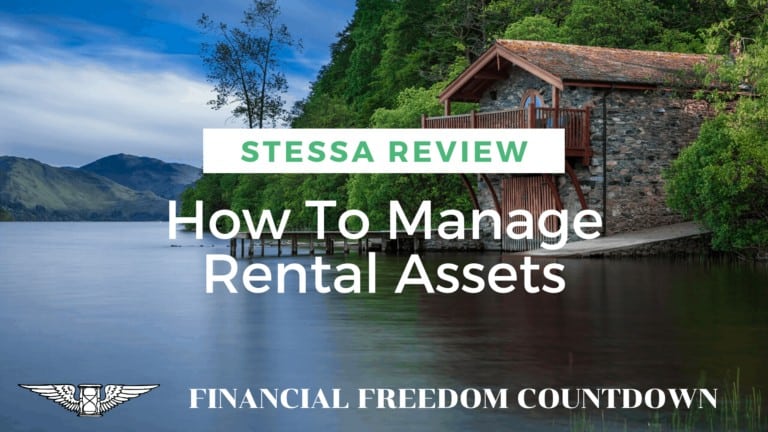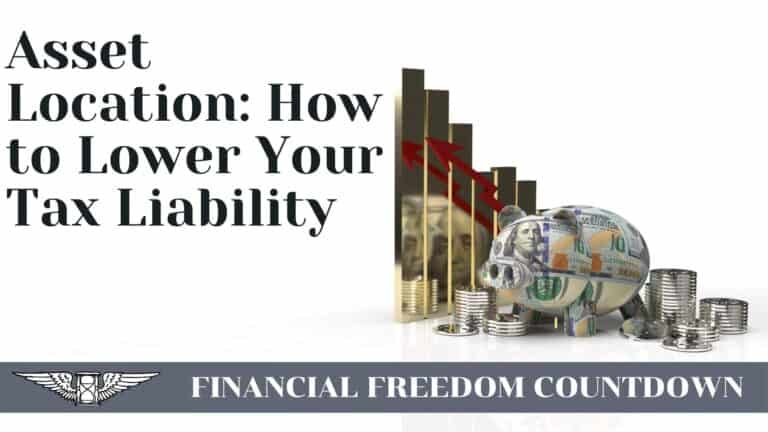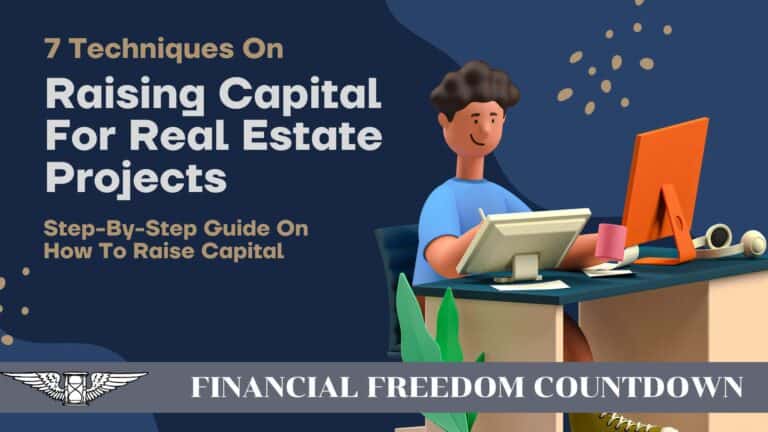Comprehensive Guide to Real Estate Passive Income
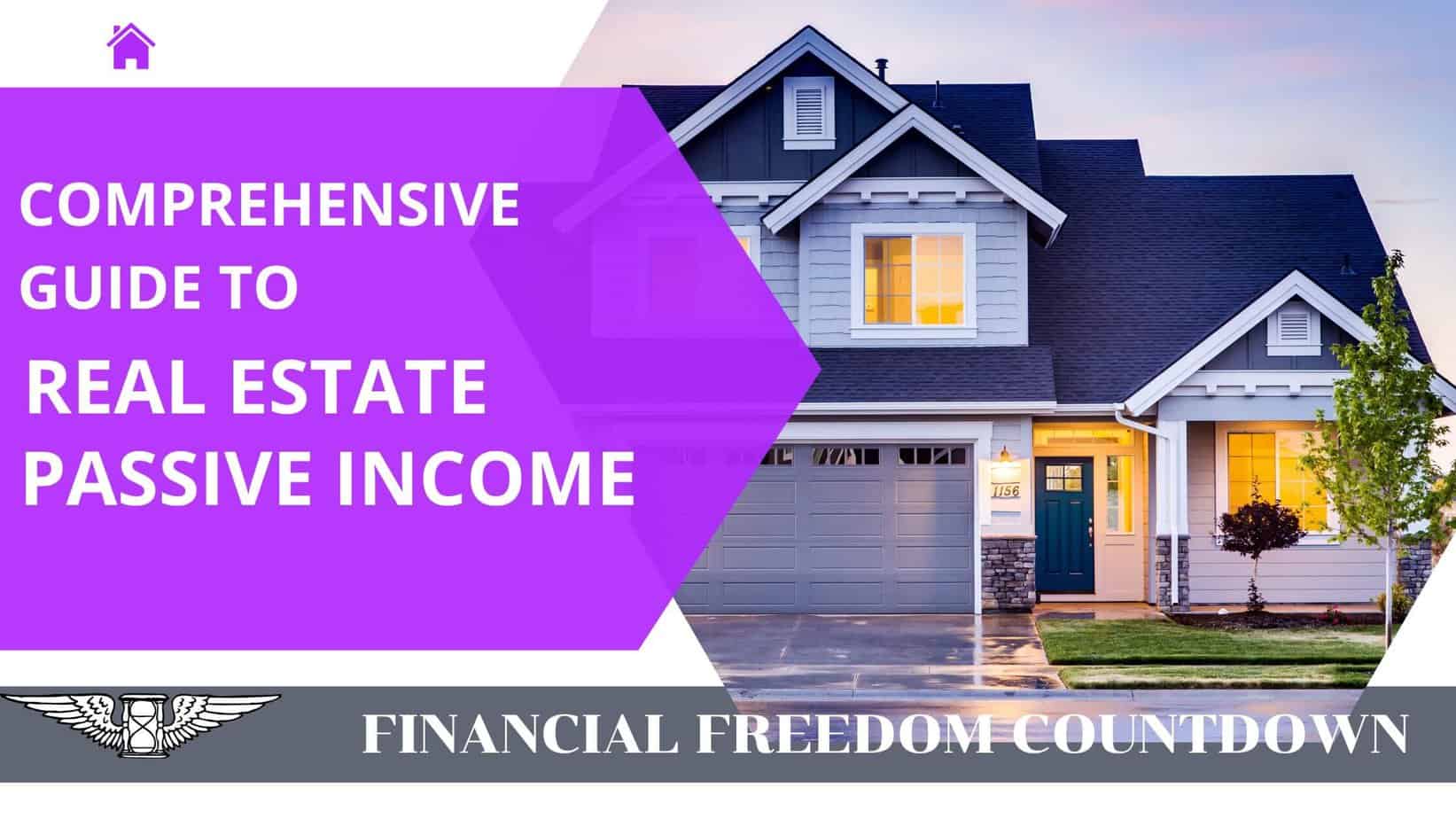
Passive income in its purest form is sitting back and accumulating wealth.
Passive income in any form is the best way to accumulate generational wealth. It is like having a second job, and in many cases, a person can earn as much or more from passive income as they are from their current job. Having a passive income is great for many financial goals like:
- Funding college education funds
- Building a retirement fund to retire early
- Achieving financial freedom
- Paying off debts
- Funding other investment opportunities
Passive income can be in the form of royalties from something you’ve invented or published. Passive income can also be from stock dividends and interest payments from fixed-income investments like bonds. In real estate, passive income comes from collecting rent from properties you own or from real estate stock dividends.
What Is Passive Real Estate Investing?
Passive real estate investing is a hands-off approach in which investors only have to provide money, which other professionals manage the property and generate income for them. However, there are degrees to what is truly considered passive income and it is function of also knowledge and skill besides money.
The most popular way to accumulate wealth through passive income is with real estate rental property. Some people don’t consider rentals passive income because a landlord usually has to do some work on the property.
Usually, when a tenant calls with a problem, the property owner will respond and take care of the problem. That is still considered a passive income. And it is a misperception that generating a passive income from real estate requires no work.
Either way, it is possible to generate a good income from owning rental properties. Owning rental properties also gives the owner the option of improving the property over time to build equity. Value added real estate improvements would make it more desirable when it comes time to sell the rental property.
Passive real estate investing is still a business, and as a real estate investor, it should be treated as a business. It is especially true for landlords of single-family homes. Some of the activities that a real estate investor will have to be involved with include:
- Finding properties to buy
- Screening prospective tenants
- Hire a property management company
- Making repairs or hiring companies to make repairs to the property
- Keeping on top of local rental income laws, which might require hiring a real estate attorney
To be successful at passive real estate investing will require some hands-on work and a sound business strategy. The beauty of passive real estate investing is you make money when you’re at a regular job, on vacation, mowing the lawn, and asleep. There are numerous ways for a person to make money with passive real estate investing.
17 Ways To Obtain Passive Income From Real Estate Investments
Single-Family Rental Properties
Many investors will begin by buying one single-family home for rental property. Or they become accidental landlords by moving out of their current starter home, buying a bigger house, and renting their former single-family home.
Before converting your existing primary residence to a rental, ensure that you use the right metrics to evaluate a rental property. Sometimes you could be better off by taking the IRS primary home sale qualification for exclusion of gain as part of your tax strategy and reinvesting the proceeds into other income-producing assets.
Starting with a single-family rental is a great way to learn the basics of passive real estate investing and build wealth. Many landlords have put their children through college by owning one or two single-family homes for rental property.
With today’s supply and demand problems in the housing industry, single-family homes for rent are in significant demand. Owning a rental property in high demand will mean that landlords will never have to put up with too many weeks of a vacant rental home. A vacant rental home means no passive income. And when a property is in demand, passive income should continue without interruption to the cash flow.
A single-family home or condo might take more work with repairs and upkeep, but the steady passive income makes it worthwhile. And for the most part, those that rent single-family homes take more psychological ownership of the house and take better care of the rental property.
Since single-family homes are in such high demand, it will be easy to find a new tenant when a tenant moves out. Single-family rentals are perfect for the hands-on real estate investor since they are not too hard to maintain. And if a major repair is necessary, calling a professional to do the job is not that hard.
When someone starts passive real estate investing, buying a house for rental income is the most accessible type of property to purchase. A single home takes less of a down payment than other property types. Someone new to active real estate investing could find a great rental property that their real estate agent handpicked just for this purpose.
A rental property is an investment for monthly income and landlord also gains the equity from the house rising in value. When it comes time to sell the house, selling a single-family home is more straightforward than selling other types of rental property.
Choosing a single-family home in your local real estate market is an excellent choice due to the easier learning curve. You already might be familiar with buying your primary residence, so that the process will be similar.
Please make sure you use real estate agents who work with investors. or have several real estate properties. The critical difference is that residential real estate agents working with typical home buyers focus on aesthetics like granite countertops. In contrast, agents who own rental properties themselves will understand you want a profitable deal based on market data.
The Qualified Business Income (QBI) deduction (also called pass-through deduction, or section 199A deduction) was created by the 2017 Tax Cuts and Jobs Act (TCJA).
With the QBI deduction, most self-employed taxpayers and small business owners can exclude up to 20% of their qualified business income from federal income tax.Ensure you meet the qualifications for QBI deduction on the rental property.
Multifamily Rental Properties
Multifamily properties are duplexes, triplexes, and fourplexes. They aren’t as easy to maintain as a single-family home, but they don’t require nearly the amount of maintenance an apartment takes.
Since they allow for more than one renter, they provide more passive income than a single-family rental property will. And if one tenant should move out, a landlord will still be making passive income from the other tenants.
Passive real estate investing in multifamily properties has shown less volatility over the past few decades than any other commercial real estate has. When adjusted for risk, multifamily properties have yielded the best returns. Compared to a commercial properties, like retail, multifamily properties have done very well during the pandemic.
The other advantage of a duplex or triplex is house hacking with privacy. House hacking has become popular to reduce housing costs. A duplex lets you house hack while maintaining your own space versus having a stranger share a living area with you.
Also, duplex, triplex, and fourplex qualify for residential mortgages, so you can accumulate many rental units without seeking commercial or hard money loans.
A duplex, triplex, or fourplex are good options because you can obtain residential mortgages on these properties. The lender considers the income from the other units as income towards your mortgage payment. You can live in one unit while renting out the other units enjoying price appreciation as the tenants pay your mortgage.
The Federal Housing Administration allows an investor to buy a multifamily property with a 3.5% down payment versus a 20% down payment with a conventional mortgage loan.
Apartments for Passive Real Estate Investing
Of all the different commercial properties, apartment investing is probably the best for a real estate investor to earn passive income. Apartments cost more initially, but they also provide the best income.
Apartments are classified as any property that has five or more residential units. Real estate investors interested in apartments for passive real estate investing can get a commercial loan instead of a residential loan.
Owning an apartment building also takes more work to maintain, find tenants and make repairs. A landlord could do much of the work on a single-family home, but one would most likely need a management company or property manager for an apartment building.
Even after hiring a property manager, the rental income on an apartment would far exceed that of a single-family home. There would never be a time when there would be no tenants, and passive income would continue.
Commercial real estate loans have shorter terms (typically only five years) and have higher interest rates. The initial investment is a lot higher than small multifamilies. Hence, it makes sense for beginners to buy the physical property with four or fewer units.
Turnkey Real Estate Investing
Investing in turnkey real property is another way to increase passive earnings. A turnkey property can be a house, duplex, or apartment. A turnkey property has been refurbished and wholly renovated before being sold to a real estate investor. They are available for tenants immediately, and some already have tenants, which means an investor starts to collect passive income right away.
When investors buy turnkey property, they can immediately start earning a passive real estate income. Turnkey real estate investment properties are popular with investors who want to purchase real estate property outside of their local area. Turnkey properties are one of the simplest forms of long-distance investing, especially if you do not live in one of the best states for real estate investors.
There are turnkey property companies that do all of the work to get these properties ready for sale. All an investor has to do is find the turnkey property in the location they are interested in, and once purchased, they will start earning passive income. Since these properties have been refurbished with the latest appliances, tenants will want to rent them. It improves the cash flow for the investor since these properties are rarely vacant.
Commercial Real Estate
Investing in a commercial property is another way investors earn rental income from real estate. Commercial property would include office buildings, small and large shopping centers, or malls. The advantage is that leases are usually for a longer term than residential properties.
Even if a tenant leaves the property, finding a new tenant shouldn’t be a problem. Because of longer leases, these types of properties provide stable passive income streams. A triple net lease (NNN) is the best for of passive real estate investment for commercial properties.
The downside is the length of time between tenants and the type of remodeling and refurbishing that one might require for a new tenant. Commercial property will cost more than a house or small apartment and are best for partnerships unless the investor has a lot of cash. A partnership will also mean that profits and investment decisions are divided among the partners.
Mixed-Use and Industrial Properties
There has been a growing demand for mixed-use properties, especially in cities with little land left to build on. One can use a mixed-use property for residential, retail, institutional, and industrial tenants. This mix of uses can provide landlords and investors with a steady income.
Industrial-only properties are sometimes a forgotten area of passive real estate investing. Industrial properties are used for warehouses, manufacturing facilities, and storage.
Given the remote work impact on real estate, homeowners may prefer smaller homes with bulky possessions in self-storage facilities.
Industrial properties are also excellent for producing a steady passive income stream. They don’t require much maintenance or management, but one might have extended vacancies between tenants.
Mobile Home Parks
With skyrocketing housing prices, mobile homes are a good housing option for those that don’t want to rent but can’t afford the high costs of buying a house.
Usually, when an investor owns a mobile home park, they own the land and then charge rent to those who locate their mobile homes on the property. Since land is expensive, those who use mobile home parks for passive real estate investments are part of a partnership. There are also options for rent-to-own mobile homes providing housing options at lower income levels.
Land Lots
Vacant land property investments are great for developing neighborhoods. You can find low-cost vacant land in an area where the market and economy are predicted to grow.
In addition, we know that with vacant land, investments take time. So if you don’t mind waiting for the region to grow, you could sell the property at a higher value in the long term.
The most significant risk with vacant land is that you need to be on the “path of progress,” or you could be stuck with the vacant land for decades. Vacant land does not yield any income and has all the associated expenses, including property taxes.
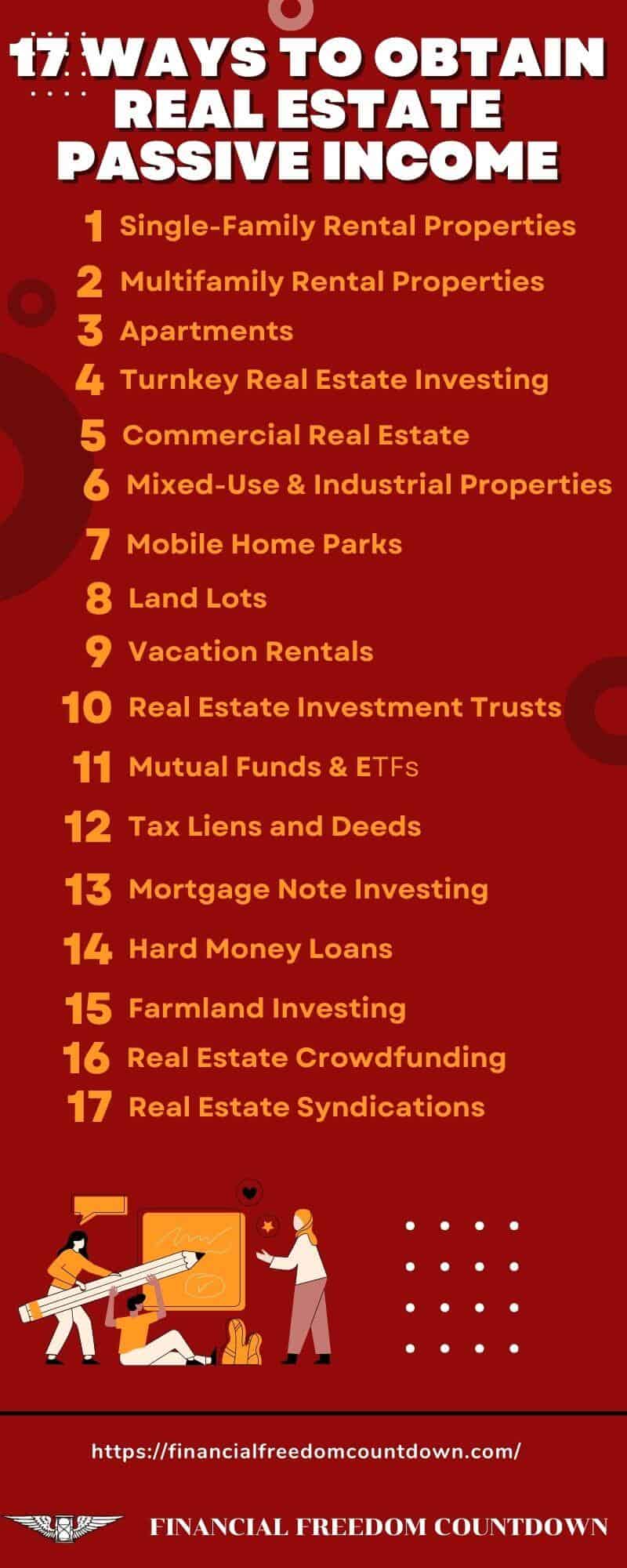
Vacation Rentals
Owning a vacation rental is another way to create passive income from real estate investing. Vacation rentals or short-term rentals work best in cities that attract many tourists or have a significant transient population.
Vacation rentals require more work. Considering vacation rentals have a quick turnover of renters, more cleaning, maintenance, and housekeeping are needed. All turnover activities, including cleaning, can be outsourced, but one needs to factor in these costs when selecting the appropriate passive income real estate investments.
Cash flow might be uneven due to slow seasons for tourists. But, landlords can charge more per night than they would charge for long-term leases. Investors have to make sure of local renting laws since some cities have restrictions for short-term leases. Airbnb and VRBO are the most popular platforms for short-term rentals.
Real Estate Investment Trusts
Real Estate Investment Trusts (REITs) are sold in the form of stocks on the stock exchanges. They are traded just like a stock is traded. REITs are perfect for investors that want to participate in the real estate market but don’t have the money or the interest in buying real estate properties.
A REIT is ideal for participating in the real estate market without paying property taxes or managing rental properties. REITs have to pay out at least 90% of their taxable income in dividends. Because of this, they can pay dividends that are better than most stocks pay. Most REITs pay a dividend quarterly, but some pay each month.
Since dividends are taxed unfavorably as per the IRS, it is better to develop an appropriate tax planning strategy. REITs have a place in your asset allocation, but one must determine their asset location based on the purpose.
As with any real estate investment property, the price of REITs can go down, but that is a risk even with real estate. REITs invest in all types of properties, including:
- Houses and apartments
- Casinos, hotels, and entertainment venues
- Medical facilities and hospitals
- Storage facilities
- Commercial properties
- Cell tower infrastructures
- Structured finance assets and servicing mortgages in the multifamily, single-family rental, and commercial real estate sectors are known as mREITs.
Some REITs buy properties in regions, like the south or Sunbelt areas, that are growing fast. A high yield doesn’t necessarily mean it is an excellent passive investment. If a stock drops in price but the dividend remains the same, the yield will increase. It is essential to do research on a REIT before buying it. There are many to choose from, including the following REITs:
- New Residential Investment Corp (NRZ)
- Realty Income (O)
- Annaly Capital Management Inc (NLY)
- American Tower (AMT)
- Medical Properties Trust (MPW)
- Gladstone Land Corp (LAND)
Mutual Funds and Exchange-Traded Funds
Investing in S&P 500 doesn’t provide sufficient diversification to the real estate sector.
Mutual funds and exchange-traded funds (ETFs) are funds that invest in a portfolio of REITs and real estate stocks. Buying a fund or ETF is a way to diversify a real estate portfolio compared to buying one or two REITs. Unlike individual REITs, funds and ETFs have an expense ratio to run the fund. Investors will avoid funds that have too high of an expense ratio. Some of the best real estate funds today include:
- Fidelity Series Real Estate (FSREX)
- Fidelity Advisor Real Estate Z (FIKMX)
- Vanguard Real Estate Index Fund Admiral Shares (VGSLX)
- Fidelity Real Estate Income (FRIFX)
- Fidelity Advisor Real Estate Income I (FRIRX)
When it comes to income tax filing, exchange-traded funds might be a little friendlier in some cases than a mutual fund and have lower expense ratios. Here are a few of the best real estate ETFs at this time:
- Vanguard Real Estate (VNQ)
- Charles Schwab U.S. REIT ETF (SCHH)
- Real Estate Select Sector SPDR Fund (XLRE)
- iShares Mortgage Real Estate ETF (REM)
- Invesco S&P 500 Equal Weight Real Estate ETF (EWRE)
REITs and Real estate ETFs experience price volatility like stocks and are also susceptible to interest rate changes and the underlying real estate market environment. It is best to adopt a dollar-cost averaging strategy to smoothen the price volatility.
My favorite brokerage account to dollar cost average REITs and Stock ETFs is M1Finance.
Also, M1Finance has zero fees, a wide selection of ETFs, auto-investment, and auto-rebalance features. It also has pre-built asset allocations if you want to get started immediately and fractional shares purchases so you can buy expensive stocks or ETFs even if you do not have all the money. You can read my M1Finance review for more details.
Tax Liens and Deeds
When taxes are not paid, the government has the power to take control of a home. When it comes to tax lien houses, investors have a significant discount to purchase them but should only do so if they have a solid plan.
Besides unpaid property taxes, utility bills or HOA dues are grounds for seizing and auctioning properties.
Mortgage Note Investing
Real estate note investing is a way to buy the real estate and property debt at a discounted price to acquire the property. Investors find note investing very profitable as they can buy a property at a lower cost, cover the debt accumulated, and resell it at a higher price.
Essentially the investor is the bank for the individual purchasing the property. When exploring investment properties, note that this type of property investment follows specific rules and regulations; however, it is a profitable strategy. Experienced investors can navigate note investments to have high returns.
Most note investing opportunities are restricted to investors meeting the accredited investor qualifications.
Hard Money Loans
Hard money lending is a short-term real estate loan obtained from private investors or individuals at rates higher than a traditional lender based on the value of the property instead of the borrower’s creditworthiness. Hard money loans are a form of note investing but with terms of a few years or less.
There are many circumstances where a person may need to borrow money. If a traditional mortgage does not work, there are many financial options available to you to draw down credit and get access to the cash you need.
One of the more popular options is a hard money loan. Loans are quick, secured by that property, and comparatively easy to get if you have property.
This approach may benefit those who cannot obtain a regular loan due to their lack of excellent credit scores. Or for people who require more money than a typical lender will provide. Or if they do not have the down payment. Typically investors who fix and flip houses will seek hard money loans due to the short-term nature of the rehab and the difficulty of obtaining a conventional loan.
Farmland Investing
Farmland investing has a long history of producing stable returns. The returns are due to increasing farmland values and the profit from the cash crops.
No one is making more land. As the population keeps increasing, we need to build more houses and acquire more land for transportation, shopping, etc., reducing the amount of farmland available. Also, with the increased global population, demand for food rises, making the existing shrinking supply of farmland more valuable.
Data from the Bureau of Economic Analysis and the USDA indicates an upward trend for farm real estate’s nominal value.
Real Estate Crowdfunding
Real Estate Crowdfunding also known as crowdfunded investing or property crowdfunding, allows several investors to pool their money together and buy a real estate investment property with the contributed pool.
Crowdfunding for real estate investors is a way to diversify their investments and own multiple properties with less risk than if they were doing it alone. The process gives individual investors access to the real estate market without owning, financing, or managing properties.
For a developer or a real estate professional, raising money from individual investors helps finance the project without needing to fund the entire commercial real estate development by themselves.
Real estate crowdfunding has become one of the most popular ways to diversify a portfolio and a way for those interested to invest in apartment buildings and other forms of real estate.
When an investor invests their money using real estate crowdfunding, they do not have to worry about the maintenance of the property, mortgage payments, or tenants. Real estate crowdfunding is an excellent way to invest in apartments and collect passive income and profit when the property is sold.
One advantage of real estate crowdfunding is it can offer investors access to exclusive property investments that might not be available to the general public.
Another advantage is they usually pay higher returns to investors than a publicly-traded REIT will. But with the higher return, there is a higher degree of risk associated with real estate crowdfunding.
Streitwise permits non-accredited investors to start with a minimum of $2,500. EquityMultiple offer accredited Investors access to commercial properties with a minimum of $5,000.
Real Estate Syndications
You can start real estate syndication with enough real estate investing experience and a competent team.
As a real estate syndicator, you will raise money from a group of investors who pool their capital and jointly purchase real estate properties. These properties can be apartments, self-storage units, mobile home parks, office buildings, malls, warehouses, etc.
The syndication has two main parties: the syndicators, more commonly known as the general partner(s), and the passive investors. The general partners are responsible for the following:
- Completing all due diligence on properties
- Underwriting all deals
- Secure the financing
- Building the business plan
- Negotiating with sellers
- Finding investors and raising capital for real estate transactions
- Working with the property management company
- Handling investor relations and asset management
The passive investor will provide a portion of the money needed to acquire the property. The passive investor owns a share of the purchased property in exchange for their money. Investing with real estate syndication allows an investor to reap the benefits of cash flow and tax breaks without the stress of being a landlord.
Passive investors will receive passive income in monthly or quarterly returns. When the property is sold, they will receive a return on their investment while at the same time achieving equity pay down, real estate tax benefits, and appreciation.
Other benefits of real estate syndication are control and diversification. Instead of owning just one property, the pool of investors in the syndication can buy several apartment buildings or other property types, diversifying the portfolio.
As a passive investor in the real estate syndication, you will control the properties you want to be an owner of. Unlike publicly traded real estate investment trusts (REITs), you will choose which properties to invest in.
The SEC has defined strict criteria for raising money from investors. Ensure that you follow the legal process and have a team in place before undertaking the role of a General Partner
Summary of Real Estate Passive Income
Passive real estate investments are one of the best ways to create a steady passive income. Some forms are passive investments, while other real estate investments are more active. Investors can buy houses, duplexes, and apartments with the rents creating a positive cash flow.
Owning single-family homes as a real estate investment property is more accessible than owning an apartment complex, but the rents will increase with more tenants. Buying a single-family home will cost less money and be less difficult to manage and maintain.
To be classified as an apartment, the property has to have five or more units. Investors need a commercial loan instead of a personal loan when buying an apartment. There are also turnkey properties and passive income real estate crowdfunding opportunities to invest in. Turnkey properties are refurbished and renovated before they are sold. As soon as an investor buys a turnkey property, they can rent it and start collecting rent payments immediately.
Owning a commercial property like a shopping center will have the advantage of long-term tenants, which ensures an uninterrupted cash flow. Another type of commercial property includes manufacturing facilities, storage facilities, and industrial properties.
Other passive real estate investment forms include vacation rentals and mobile home parks. Vacation rentals can be tricky depending on the local short-term rental laws. A mobile home park usually requires that the investor own the land where the mobile home park is located.
Some investors aren’t interested in owning real property, but they are interested in profiting from real estate. An investor can buy REITs, funds, and ETFs. These forms of investing are perfect for those who want to start investing in real estate.
The tax benefits with these real estate investments are limited compared to owning real property, and you will have to pay capital gains tax when you sell these for a profit. Also, leverage, which accounts for an unfair advantage when comparing the performance of real estate vs. stocks, is absent in REITs. REITs can be considered similar to investing in stocks that derive their income from real estate.
Real estate income streams are reliable and perfect for creating passive income. If the property value drops, whether an investor owns actual buildings or REITs, investors still get a monthly payment from rents or the interest payments from dividends.
How much an investor needs monthly can be adjusted by how much rent they charge their tenants. Rental real estate is one of the fastest-growing forms of passive income and will provide additional residual income from earning rental income.
FAQs on Passive Income From Real Estate
Is real estate a good passive income stream?
Real estate can be a good passive income source and active income, depending on your skills, time, and available budget.
If you buy a property and collect income without active work, that is considered passive income. As per the IRS, rental properties are regarded as passive income because the money you make from the property is not directly related to any work you do.
If you buy a property, fix it up and then sell, that is considered an active form of income. Using the BRRRR method or wholesaling property is active income. You are actively doing something to make money.
You can make good money from both active and passive income sources in real estate. It depends on your goals and how much time you are willing to put into the investment. If you want to make a lot of money, you will likely need to be more active in your approach. Passive income is probably the way to earn some extra income with minimal effort.
As with any income source, it is best to diversify. Also, besides real estate, there are several passive income ideas, most of which do not need significant capital investment.
How is passive real estate income taxed?
In the United States, the IRS uses the material participation test to determine if the income is passive which determines the tax rate. The IRS has tax facts about renting out residential property, which one should discuss with their CPA to maximize all the tax advantages of real estate investing.
The tax rate on your real estate income will depend on your overall income and tax bracket.
Is passive real estate investing worth it?
Yes, passive real estate investing is worth it as long as you know all the risks and have addressed them. It is a great way to earn residual income and build generational wealth.
Passive real estate investing does not require much time or effort to maintain. So one can focus their attention on improving human capital to earn more at their day job by developing high-income skills. Or create other side hustles like starting a website for additional income.
Are rental properties passive income?
Yes, rental properties are considered passive income because you are not actively involved in the day-to-day management of the property. You are simply collecting rent from tenants. The amount of rent you charge will determine how much passive income you earn from the property.
There are specific IRS rules which classify income as active or passive so ensure you are aware of them.
What are some risks associated with passive income from real estate?
There are several real estate investment risks so one should have an appropriate risk mitigation plan in place.
One of the most significant risks associated with passive income from real estate is that the property value or rents could drop, which would decrease the amount of passive income you earn.
Another risk is that the tenant could damage the property, which would cost you money to repair, and you do not have sufficient cash reserves or deposits from tenants.
The government could also impose an eviction moratorium leaving you with no income for months.
How can I reduce the risks associated with passive income from real estate?
There are a few ways you can reduce the risks associated with passive income from real estate. One way is to diversify your investments. You should not put all of your eggs in one basket. Instead, spread your investments out over a few different properties.
Another way to reduce risk is to make sure that you buy quality properties in good locations. It will help to ensure that the value of the property or rent does not drop and that you will be able to find quality tenants.
Finally, it is crucial to have a good insurance policy in place if there is any damage to the property. It will help protect you from any financial losses if something happens to the property.
And have sufficient reserves for all Opex and Capex expenses, including long periods with no rental income.
What is residual income?
Residual income is money a person has remaining after all expenses have been paid. Residual income is money left over after paying for housing, food, debts, utilities, and other monthly bills. The more residual income someone has, the more financial freedom they have to pursue other financial goals.
In many ways, passive income opportunities are the same as residual income because passive income will raise a person’s residual income.
But passive income isn’t always residual income if the person uses the passive income to pay off monthly expenses. But a passive income can certainly help raise someone’s additional residual income each month, which one can put into retirement accounts.
What are some things to consider before investing in passive income from real estate?
Before investing in passive income from real estate, consider a few things. One thing to consider is your financial goals. What are you hoping to achieve by investing in real estate?
Decide your current knowledge level of the real estate market and the time and effort you are willing to expend to increase your knowledge in real estate investing.
Another thing to consider is your risk tolerance. How much risk are you willing to take on? It will help to determine what type of property you should invest in.
Another thing to consider is your time horizon. How long do you plan on holding onto the property? It will help determine if you should buy a property that needs some work or a turnkey property.
Finally, you will need to consider your personal finance. Do you have room in your budget for passive investment. How much money do you have to invest in real estate excluding your emergency funds? It will help determine how many properties you can buy and what type of properties you can afford. There are several ways to invest in real estate with little or no money, but they all involve sweat equity.

John Dealbreuin came from a third world country to the US with only $1,000 not knowing anyone; guided by an immigrant dream. In 12 years, he achieved his retirement number.
He started Financial Freedom Countdown to help everyone think differently about their financial challenges and live their best lives. John resides in the San Francisco Bay Area enjoying nature trails and weight training.
Here are his recommended tools
Personal Capital: This is a free tool John uses to track his net worth on a regular basis and as a retirement planner. It also alerts him wrt hidden fees and has a budget tracker included.
Platforms like Yieldstreet provide investment options in art, legal, real estate, structured notes, venture capital, etc. They also have fixed-income portfolios spread across multiple asset classes with a single investment with low minimums of $10,000.


